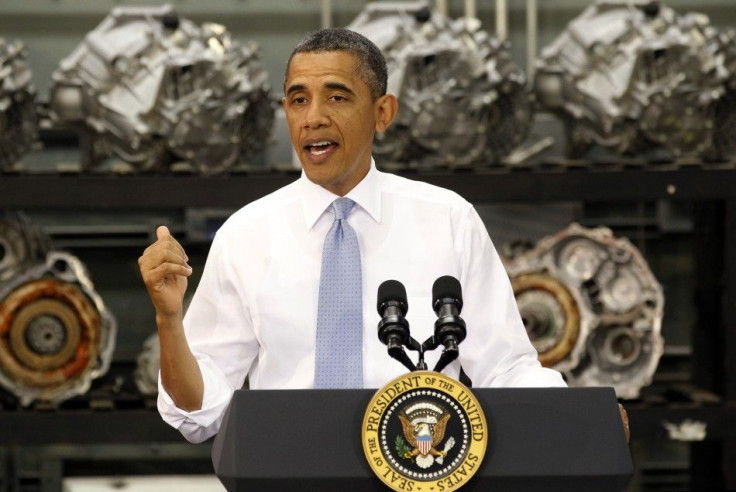Judges challenge Obama healthcare law

Lawyers for the Obama administration are in Atlanta fielding questions and defending the president's healthcare law to three federal judges who suggested they may be ready to declare all or part of the law unconstitutional.
Obama's lawyers summed up their case as they appealed a ruling by a Florida judge who declared the Affordable Care Act unconstitutional, according to Reuters. In total, 26 states and the National Federation of Independent Business joined in urging the judges to strike down the law.
The crux of the law is a provision that forces Americans to buy health insurance by 2014 or face a fine equal to 2.5 percent of their income.
As for the judges, they said they knew of no case in American history where the courts upheld the government's power to force someone to buy a product, The Washington Post reported.
I can't find any case like this, said Chief Judge Joel Dubina of the 11th Circuit Court of Appeals. If we uphold this, are there any limits on the power of the federal government? he asked.
Judge Stanley Marcus appeared to agree.
I can't find any case in the past where the courts upheld telling a private person they are compelled to purchase a product in the open market .... Is there anything that suggests Congress can do this?
Other opponents of the healthcare law say it exceeds the authority granted to Congress by the Constitution to regulate interstate commerce.
For 220 years, Congress never saw fit to use this particular power, said former Solicitor General Paul Clement, speaking on behalf of the states challenging the law.
Senior Obama administration lawyer Neal Katyal argued that healthcare is unlike purchasing other products.
You can walk out of this courtroom and be hit by a bus, he said. And if that person does not have insurance, he furthered, a hospital and the taxpayers will be footing the bill. He also argued that since most everyone will likely need medical care at some point in their lives, everyone who can afford to pay, should.
We are not saying the Congress can force someone to buy something, Katyal said. Our point is that people are already buying this good.
Judge Frank Hull, the third member of the panel, repeatedly asked what effect there would be if the court struck down the mandate, but upheld the rest of the law. She said the government exaggerated the magnitude of the mandate, saying it will affect about 10 million persons at most, not the estimated 50 million who are uninsured now.
The Atlanta court is reviewing the decision of Judge Roger Vinson in Pensacola, Fla. In January, he struck down the entire 2,700-page law as unconstitutional.
© Copyright IBTimes 2024. All rights reserved.











